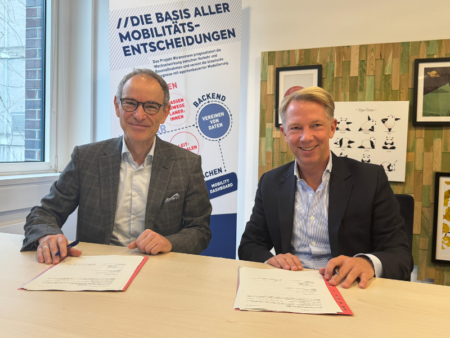Pit Group, the research and engineering branch of FPInnovations, has revealed its participation in Transport Canada’s Cooperative Truck Platooning Systems (CTPS) testing program that is taking place until August 18 at the Motor Vehicle Test Centre in Blainville, Quebec.
Supported by the ecoTechnology for Vehicles (eTV) program, the CTPS testing program is a joint effort led by Transport Canada and includes the National Research Council Canada; Partners for Advanced Transportation Technology (University of California at Berkeley); the US Department of Energy (US DOE); the US Federal Highway Administration (FHWA); the California Department of Transportation (Caltrans); and Volvo Trucks.
An independent, third-party organization that focuses on testing technologies and evaluating operational effectiveness for fleets, PIT Group, was selected to participate due to its expertise in this field, and will manage track operations and provide trailers, drivers, test engineers and scientific equipment, in addition to conducting fuel consumption measurements using the TMC Fuel Consumption Test Procedure in an ISO 17025 context.
PIT Group’s four main areas of focus are: testing the fuel efficiency of technologies using its Energotest; verifying that ELD (Electronic Logging Device) solutions meet the US and/or Canadian requirements; assessing fleet operations for areas of improvements; and research, testing and development of smart mobility solutions. The company’s Energotest is recognized in the trucking industry as the ‘gold standard’ for fuel economy tests and is ISO 17025 certified.
In 2016, the same team successfully conducted a ‘Fuel Economy Testing of a Three-Vehicle Truck Platooning System’ program. This year, the group is focusing on the real-world performance and reliability of CTPS using a range of tractor-trailer configurations, speeds, separation distances, and weights, in various traffic conditions. Through reductions in aerodynamic drag and vehicle spacing, CTPS offers the potential to improve fuel economy, emissions, traffic flow and road capacity by employing wireless communications and automation to create a convoy or platoon of multiple trucks following in close succession. The technologies employed by CTPS also have potential benefits for drivers and for increasing road safety.
“Platooning is an important step toward autonomous vehicles, and to realizing the potential to reduce fuel consumption, eliminate highway congestion and improve safety,” said Yves Provencher, director of market and business development at PIT Group.
“This year’s testing program will provide a valuable understanding of the real savings potential of platooning. We are pleased to contribute our ten years of testing expertise to assist in this valuable industry research effort.”




